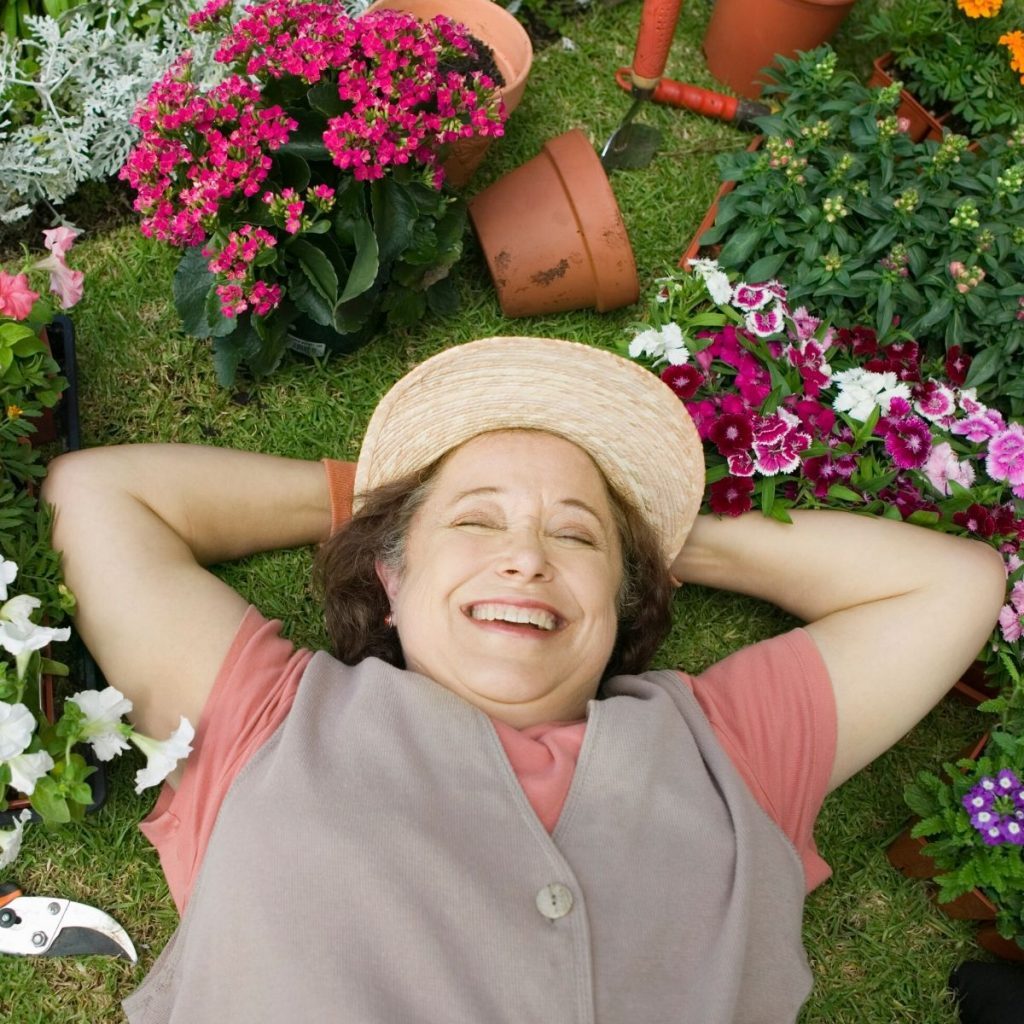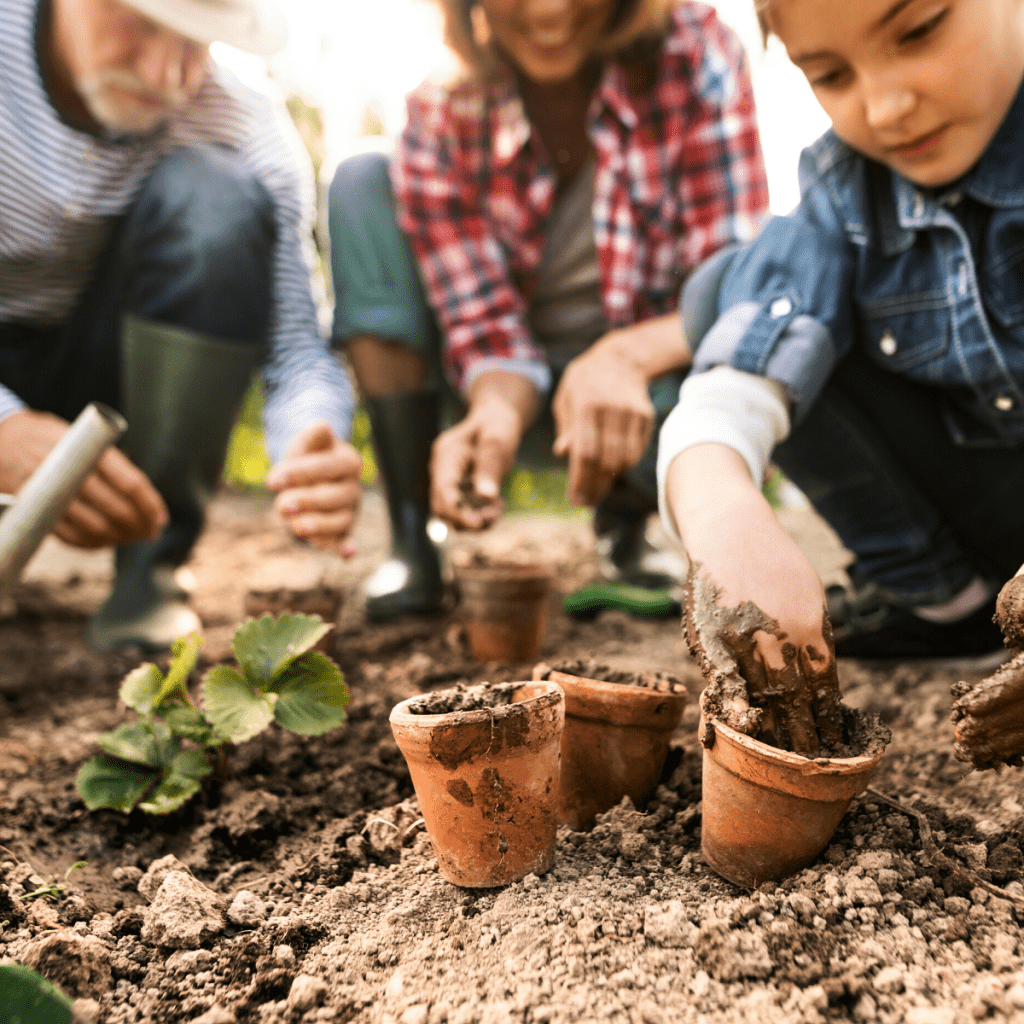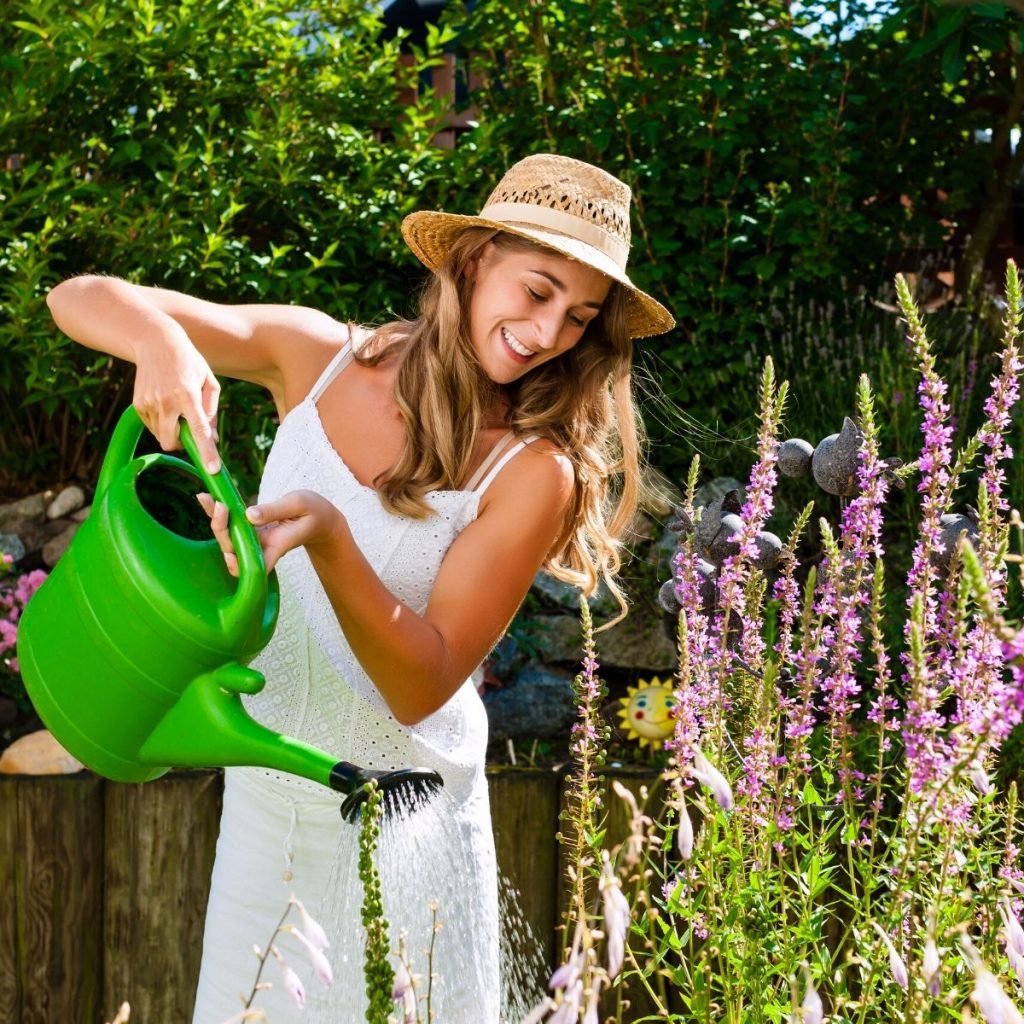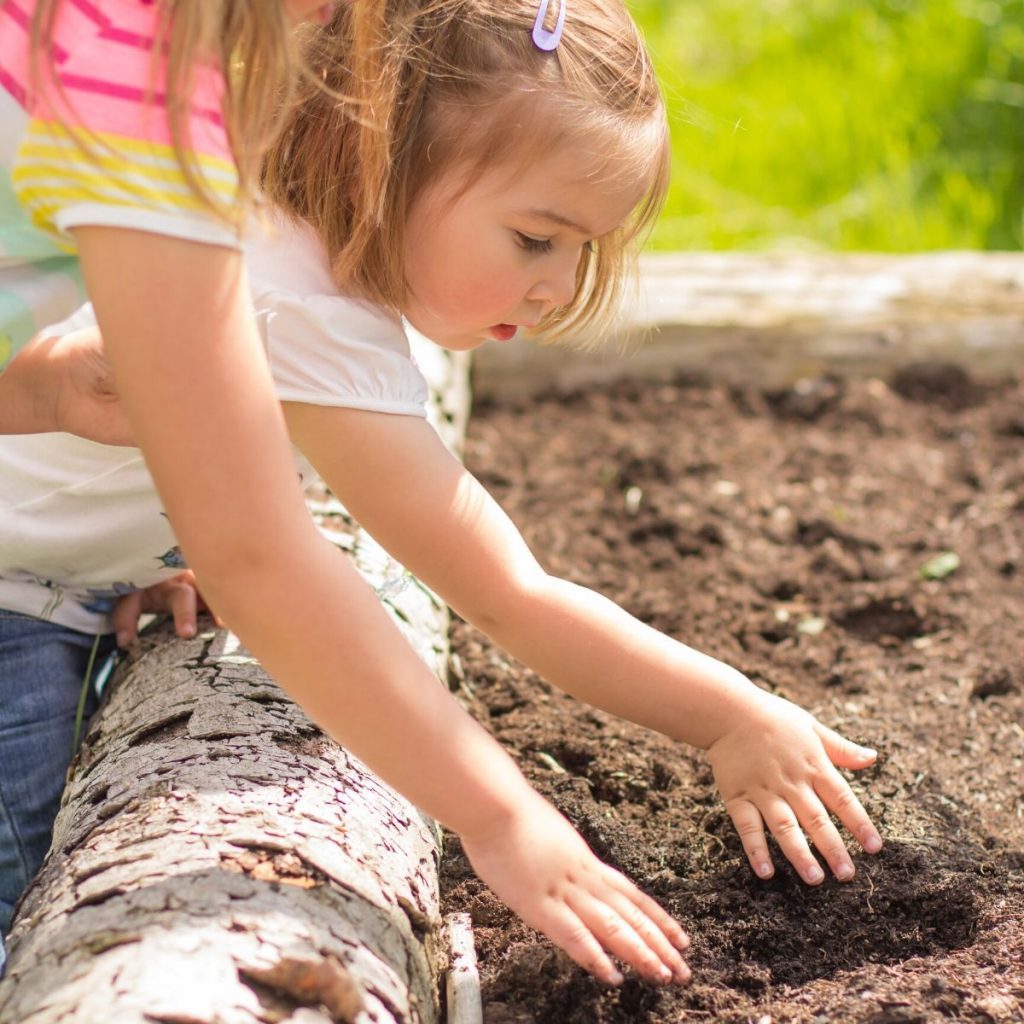Been feeling down recently? What if I told you walking barefoot in the garden could have some unintended positive effects!

Some microbes found in soil have similar effects on the brain as prescription anti-depressents but without the nasty side effects and chemical dependency.
In This Guide
This bacterium with a potentially natural antidepressant quality which is found in soil, is called Mycobacterium vaccae.
This substance has been under heavy scrutiny by the scientific community over the past few years due to its potential positive health benefits.
M. vaccae has been shown to mirror the effect that antidepressant pills have on your neurons and comes with a whole host of anti-inflammatory and immune-boosting properties too.
This bacterium is frequently found in soil and can stimulate serotonin production – sometimes referred to as “the happy chemical” – which contributes to making us feel happier, relaxed and gives us a greater sense of wellbeing.
So what do you need to do to reap the benefits of this miracle bacterium? Keep reading to find out!
Discovery of M. Vaccae & Studies On Its Benefits
The benefits of this bacterium were first discovered fairly recently (depending on what you define as recently of course…)
50 years ago on the shores of Lake Kyoga by immunologist Dr. John Stanford had recognised that the people living in the area surrounding the lake responded much more positively to certain leprosy vaccines. Stanford and his team later discovered that it was the bacterium found in the soil in the lakeshore that was providing this advantage.
Somehow, the bacterium enhanced the vaccine’s efficacy because of M. vaccae’s immune-modulating properties.
Since then Mycobacterium vaccae has been studied by academics but the discovery of its stress-relieving and serotonin-stimulating abilities a couple of decades ago has brought much more focus to the study of this substance.

In 2004 an oncologist at Royal Marsden Hospital in London named Mary O’Brien shocked the world of science when she published her paper on the study she’d done involving Mycobacterium vaccae.
Source: https://pubmed.ncbi.nlm.nih.gov/15151947/
During the study, O’Brien and her team had injected several lung cancer patients with the bacterium to see if it had any life-prolonging effects.
Because earlier trials had shown M. vaccae’s ability to combat drug-resistant pulmonary tuberculosis and boost the immune system, O’Brien thought it could help these patients fight against the cancer in their lungs.
While it did not succeed in that respect, the injection of M. vaccae into these cancer patients greatly improved their quality of life. O’Brien saw that her patients were happier in general, while also showing increased vitality and improved cognitive functioning. In other words, the emotional toll of the cancer was very much reduced.
Later, in 2007, a neuroscientist at the University of Bristol named Christopher Lowry injected M. vaccae into mice subjecting them to several stress tests.
It was clear that the ones that had been injected were exhibiting much less stress than their untreated counterparts.
Source: https://pubmed.ncbi.nlm.nih.gov/31119329/
They seemed almost to be on antidepressants, with Lowry and his team noting that the bacterium had activated many series of neurons that were in charge of producing serotonin, the neurotransmitter that, when impaired, can often lead to depression. Even more interesting was the fact that these neurons that were lighting up are also related to immune response, which suggests an important connection between the immune system and one’s emotional health.

A 2016 study from the University of Colorado Boulder, which was published in the Proceedings of the National Academy of Sciences (PNAS), supported Lowry’s research, as it found that healthy mice injected with a certain preparation of Mycobacterium vaccae became less anxious and scared then otherwise.
Source: https://www.pnas.org/content/113/22/E3130
They were put with a larger, more aggressive male for 19 days and were shown to exhibit less fear and even behaved in a more proactive nature around their aggressor than otherwise.
The mice injected with the bacterium also proved to have a 50 percent lesser chance to suffer stress-induced colitis (as measured by cellular damage to the colon) and had less inflammation in the rest of their system.
The Positive Health Benefits of Mycobacterium Vaccae-Rich Soil
Our health depends on the thriving microbiome in our guts as well as how much of the world’s natural microbiome we allow into our system.
Modern life living means we’re not exposed to as much of the natural microbiome as we should be – those of us living in urban settings are particularly sheltered from nature and the benefits of it.
These studies into the effects of bacteria from the natural biome on the human body have led to a reintroduction of the age-old relationship between humans and bacterium.

For centuries our ancestors lived with all sorts of parasites, fungi, and bacteria. It seems we have forgotten that many of these were actually beneficial to us, living with us in symbiosis after the initial infection.
The overwhelming body of evidence that continues to be discovered shows us that the millions of microbes in our digestive system indeed have a significant effect on everything from our immune systems, our smell, and our moods, to possibly even our attractiveness to both mosquitoes and other people.
Antidepressant microbes in the soil have been shown to cause cytokine levels to jump which engenders higher levels of serotonin, the happy chemical.
In tests done on rats, both injection and ingestion of M. vaccae resulted in better cognitive ability, lower stress levels, and increased concentration when compared to their untreated counterparts.
The other important health factor on which M. vaccae has a clearly positive effect is inflammation. Tests done on rats by Lowry and others have shown that the bacterium can have long-lasting anti-inflammatory effects on the human brain, which is significant considering that studies suggest excessive inflammation increases the risk of trauma or stressor-related disorders, including post-traumatic stress disorder and bipolar disorder, to name a few.
How To Get More Good Soil Bacterium In Your Life
We’ve got good news for you here: you can find Mycobacterium vaccae nearly anywhere. Step into your garden, watch the birds or take a stroll over to the park (social distancing permitting of course) and you’re likely to come in contact with some M. vaccae.
Essentially anywhere there’s dirt or soil you might ingest some of these bacterium.

But why is this bacterium found in so many places?
It’s because this bacterium lives in the soil, though at this point it remains somewhat of a mystery what factors make some soil richer with M. vaccae than others.
We do have some of the best minds on the case, however, as Lowry, the scientist from Bristol, has inspected 300 soil samples from around the US and Europe to learn more about our tiny little bacterial friends.
If you have a garden, it’s even easier to absorb the health benefits of these little microbes. These recent discoveries involving the possibly game-changing health benefits of the bacterium found in soil lends much credence to those claims that gardeners always make about their plot being their ‘happy place.’
Gardeners have been saying that gardening actually reduces their stress and lifts their mood for years but there was no scientific backing to it – now there is.
Read More: Inspiring Garden Paving Ideas
So while most of the world has been shocked at the discovery of such an important bacterium in such abundance in our soil, gardeners were more likely feeling vindicated.
Growing your own food in that garden takes it another step further as some vegetable plants can be packed with bacterium, such as the spinach plant, which boasts over 800 species of bacteria inside it.
As mentioned earlier, ingesting M. vaccae, can provide you with most of the benefits you get compared to injecting it. So eating plants straight from the garden could be a pretty direct line to get some of that happy bacterium into your body.
If you’d love to boost your health but aren’t fortunate enough to have a garden or don’t have much of a green-thumb there are alternate ways to get your dose of M. vaccae.
The seemingly indefatigable Lowry has also teamed up with microbiologist Noah Fierer to gauge if water is a source of M. vaccae too!
The initiative, which is called The Showerhead Microbiome Project, is collecting samples of water from showerheads across the US and Europe to see how many mycobacteria, especially M. vaccae, are living there.
All showerhead microbiomes will surely be different but identifying which factors create a more or less friendly environment for this bacterium to thrive is the main goal.
Source: https://mbio.asm.org/content/9/5/e01614-18
From the evidence that’s been gathered to this point, one thing is pretty clear: dirt could very well be good for your health while our modern life, which is spent in sterilised, sealed-off buildings and homes is most likely not.
Breathing in dirt-laced air, playing in dirt, digging around in dirt, anything really. Researchers have found definite evidence that exposure to outdoor microbes during childhood is linked to a much stronger immune system throughout life.
To that point, a study showed that children from Bavarian farms who regularly spent time interacting with dirt and its bacterium through the family animal stables, drinking farm milk, or helping out sewing in the fields had far lower rates of asthma and other allergies throughout their lives than their neighbors who lived much more sheltered, indoor lives.
Although there are competing arguements as to why children in rural areas have a lower number of allergies, we suspect M. Vaccae may play a part it in.
Source: https://www.ncbi.nlm.nih.gov/pmc/articles/PMC1177973/
This idea goes all the way back to 1989 when British Scientist David Strachan first suggested his ‘hygiene hypothesis.’
Strachan theorised that in a sterile world, a lack of exposure to microorganisms as a child would lead to weaker immune systems and more common occurrences of asthma and allergy.
Since then the theory has been refined to encompass only what are called ‘old friends,’ beneficial microbes from the soil and environment that evolved with us over hundreds of years.
Moving away from the hunter-gatherer, farming culture of these ancient times has severed our ties to the organisms that used to regulate our bodies and suppress inappropriate inflammation, which in combination with a high-fat diet is why we’ve seen a rise in risk for inflammatory diseases and stress-related disorders nowadays.
Some of Lowry’s studies have even shown that children raised in rural environments where they play with animals, ingest bacterium-laden dust, and get dirty outside ended up with immune systems which were far more resistant to stress and offered a much lower risk of mental illness than those living in the city.
Final Thoughts
The discovery of the far-reaching health benefits of a simple bacterium found in our everyday soil, in this case, Mycobacterium vaccae, has opened a whole new realm of possibilities to what else these soil-dwelling bacteriums are capable of.
Read More: Top Lawn Care Tips for a Greener Garden
Simple acts such as gardening, playing in the dirt or grass, or even going for a stroll through the park can reduce our stress and anxiety, make us happier, and decrease our risk for asthma and allergies as well as other inflammation-induced mental disorders.
This, all possible because when we interact with the dirt, soil, and nature of our environment, we come into contact with the beneficial bacterium that is M. vaccae.
As one of the biggest proponents of this new domain of health science, Lowry put it best when he said that we’re just beginning to open our eyes to the ways in which these bacterium have evolved to keep us healthy.
We should all be in awe. And if there is anyone out there who isn’t in awe after learning that rolling around in the dirt and breathing in bacterium-laced air is healthy, well, I guess you were just one step ahead of the rest of us.






